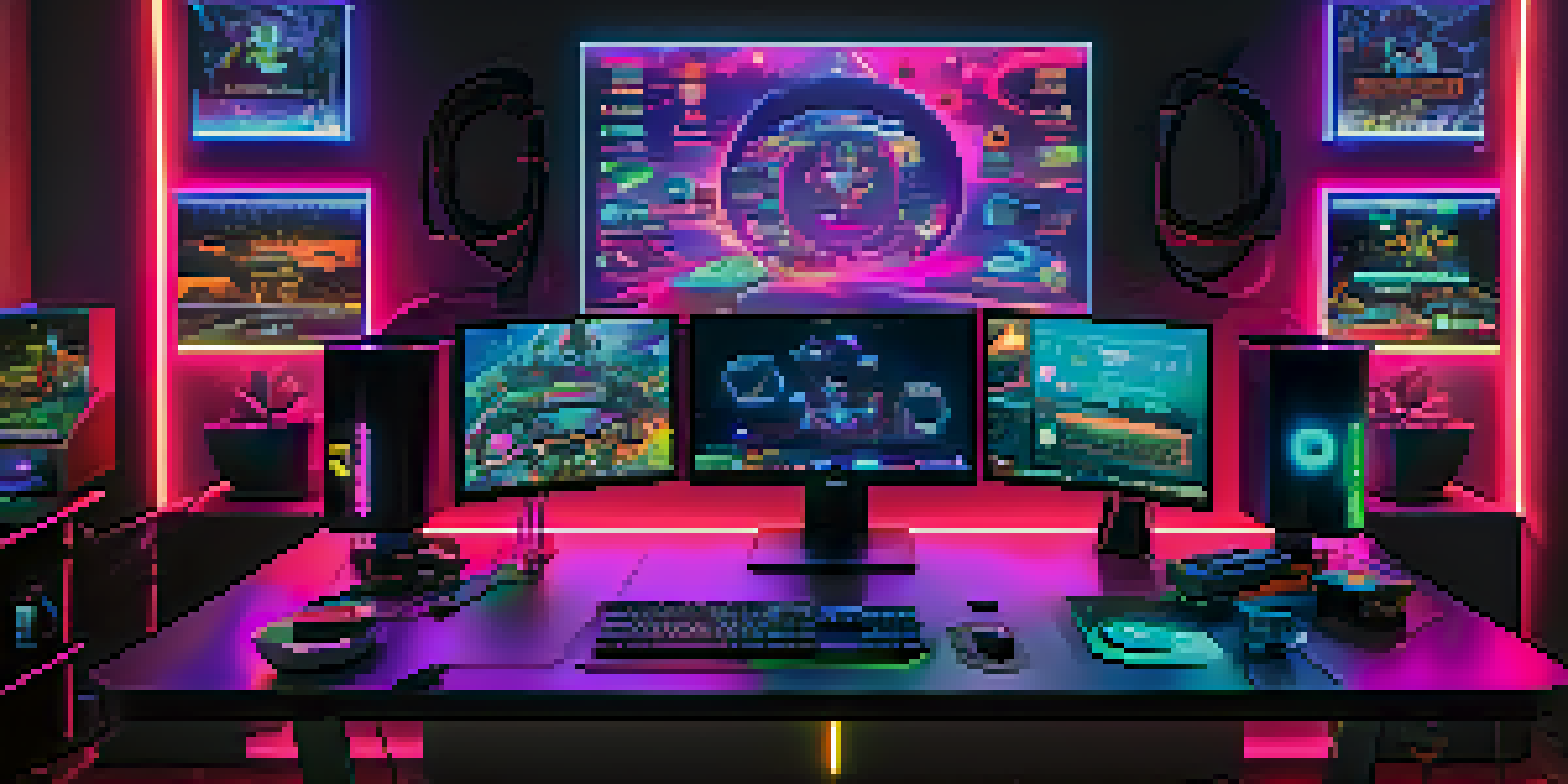Bridging Traditional Gaming with Ethereum Blockchain Technology

Understanding Traditional Gaming: A Quick Overview
Traditional gaming has long been a staple of entertainment, with players engaging in various genres from action to strategy. These games often operate within centralized systems, where developers control all aspects, including game mechanics and user data. While this model has its advantages, such as streamlined updates and customer support, it also raises concerns over ownership and player rights.
What is Blockchain and Why Ethereum?
Blockchain technology is a decentralized ledger system that records transactions across many computers, ensuring security and transparency. Ethereum, one of the most popular blockchain platforms, enables developers to create decentralized applications (dApps) using smart contracts. This technology allows for greater flexibility and creativity in game design, paving the way for innovative gaming experiences.
Blockchain Enables True Ownership
Players can own and trade in-game assets as NFTs, allowing for unprecedented freedom and control over their digital possessions.
The Concept of Digital Ownership in Gaming
One of the most exciting features of blockchain in gaming is the concept of true digital ownership. Players can own in-game assets, such as skins, characters, or virtual land, as non-fungible tokens (NFTs) on the blockchain. This ownership means that players can trade, sell, or even use these assets across different games, providing a level of freedom that traditional gaming has yet to achieve.
How Ethereum Enhances Game Development
Ethereum allows developers to create unique game mechanics that utilize the capabilities of blockchain technology. For example, they can implement decentralized economies where players earn cryptocurrency through gameplay. This not only incentivizes engagement but also creates a new revenue stream for developers, revolutionizing the traditional monetization model.
Ethereum Revolutionizes Game Design
With Ethereum, developers can create unique game mechanics and decentralized economies, transforming traditional monetization models.
Interoperability: The New Frontier for Gamers
Interoperability refers to the ability of different games and platforms to work together seamlessly. With Ethereum's blockchain, assets can be transferred between games, allowing players to use their hard-earned items across multiple platforms. Imagine owning a sword in one game that you can also use in another—this is the future that Ethereum is paving the way for.
Community Engagement and Decentralization
Blockchain technology fosters a stronger sense of community among players. With decentralized governance models, players have a voice in game development decisions, from gameplay mechanics to future updates. This shift empowers gamers, making them active participants in the evolution of their favorite titles, rather than passive consumers.
Community-Driven Game Development
Blockchain fosters player engagement by allowing them to participate in governance and decision-making for their favorite games.
Challenges in Bridging Traditional Gaming and Blockchain
Despite its potential, integrating blockchain technology into traditional gaming faces several challenges. Many players are still unfamiliar with cryptocurrency and blockchain concepts, creating a steep learning curve. Additionally, concerns about scalability and transaction fees on the Ethereum network can hinder widespread adoption among developers and gamers alike.
The Future: A Hybrid Gaming Ecosystem
As the gaming industry continues to evolve, we may see a hybrid model where traditional gaming and blockchain coexist. This could lead to innovative experiences that combine the best of both worlds, offering players engaging gameplay alongside true ownership of their assets. The potential for growth is immense, and the journey has only just begun.